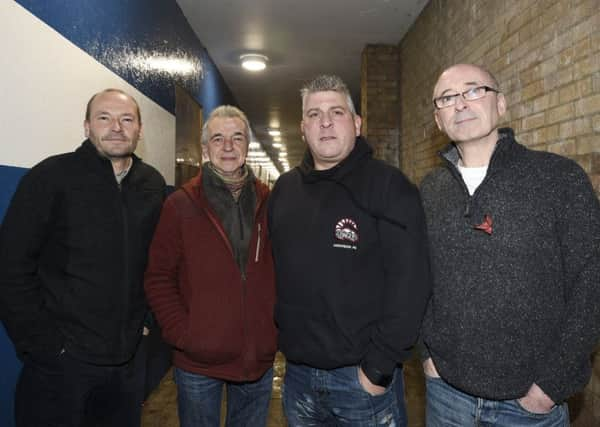Edinburgh '˜Trainspotting' addiction project spared after £437k windfall


The service, which sprung out of the heroin epidemic that swept through Edinburgh in the 1980s, had been refused funding from the Scottish Government, with staff just 11 days away from being made redundant.
However, a last-minute decision by the National Lottery to award the project £437,000 means the small team of dedicated workers can continue to support those on the fringes of society, with complex and multiple needs for at least the next three years.
Advertisement
Hide AdAdvertisement
Hide AdAccording to the latest figures the median age for drug-related deaths in Scotland is 41, having risen from 28 in 1996.


The “Trainspotting” generation refers to the group of drug users who first became hooked in the early 1980s when heroin flooded into the capital, around the time the hit movie is set.
Danny Campbell, manager of NEDAC, welcomed the funding lifeline.
He said: “This funding is critical. We were 11 days away from all being made redundant when the Big Lottery committee awarded us the funding.
Advertisement
Hide AdAdvertisement
Hide Ad“They’ve narrowed the field in terms of treatment services, the clients who we’re aiming at with mental health and substance abuse issues are finding it too hard to get into treatment – the barriers are too big.


“If you’ve got an outcome-based contract and your funding depends on you getting certain outcomes, like getting people into abstinence, into mutual aid groups and long-term free support then when the complex-needs clients come to your door, they aren’t going to give you good outcomes in six months.”
Campbell said that the people they look after are unable to engage with the health services due to a wide variety of factors caused by their chaotic lifestyles. This can be anything from leaving mail that may refer to doctor’s appointments unopened to not answering telephone calls and constantly changing mobile numbers.
Additionally, many people with addiction issues have underlying mental health issues.
Advertisement
Hide AdAdvertisement
Hide AdOften the clients NEDAC deals with are labelled as “difficult” by health and social care services and are stigmatised by their substance use.
Campbell added: “We work with them as individuals – not to fit them into the service but to fit the service around them and that’s why we carried on with NEDAC and that’s why we’ve developed the complex multiple needs service.
“The majority of the drug-related deaths we see are clients not in touch with the treatment service other than perhaps getting substitute prescribing. They’re not getting any additional support, they’re isolated and they’re lonely – living on their own.
“But they’ve also built up a reputation of being noncompliant, lacking motivation, chaotic substance abusers who can’t engage with treatment services.
Advertisement
Hide AdAdvertisement
Hide Ad“But also what’s failed to have been acknowledged, is that for a lot of these clients their substance abuse is their coping strategy for their underlying mental health issues.
“When we start to stabilise that substance use, the mental health issue is no longer being self-medicated and that’s when they become chaotic and are likely to lapse back into using on top of their prescription.
“They then run the risk of being struck off from their GP and losing their prescription because they’re using on top of their prescription.”